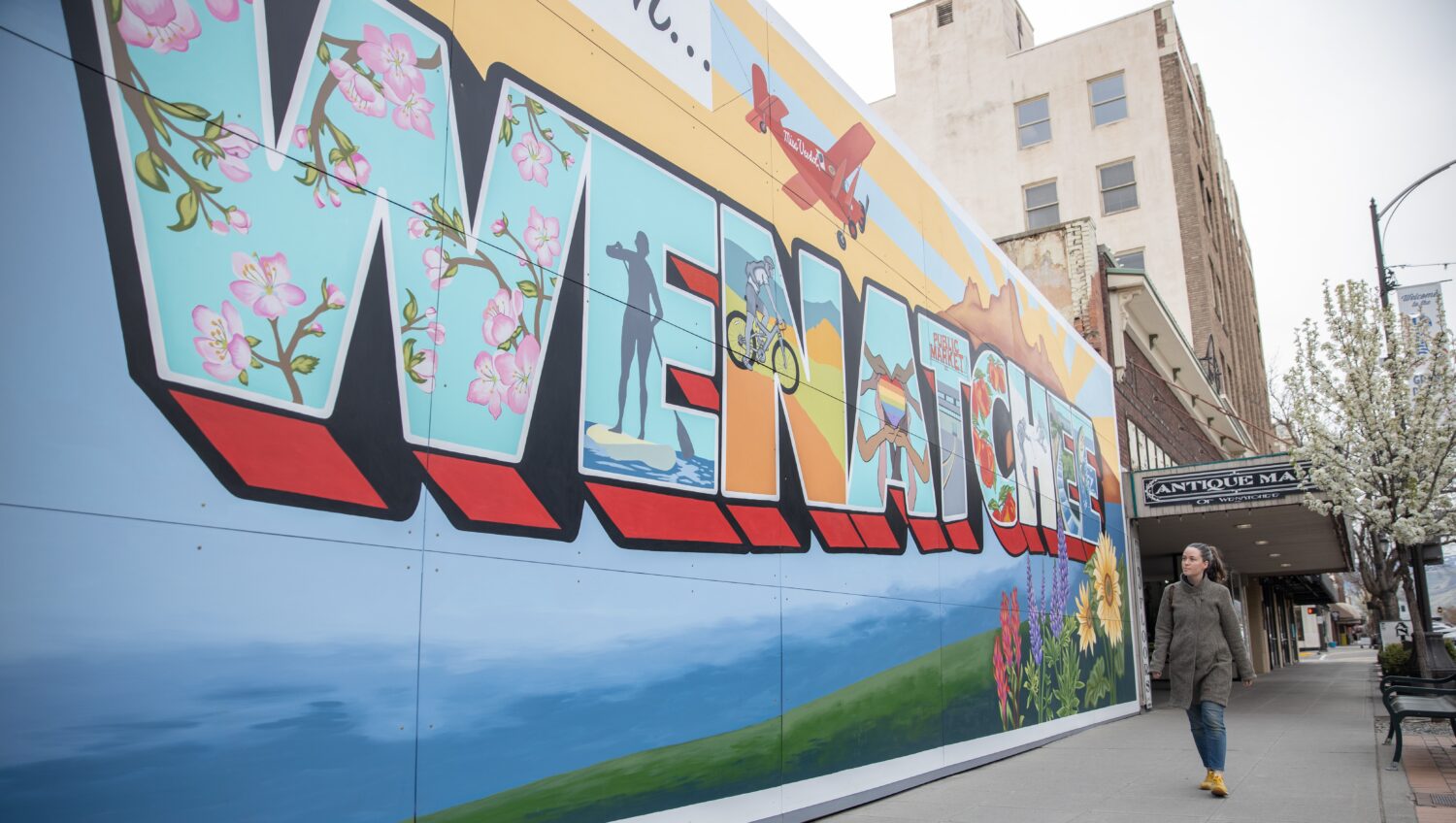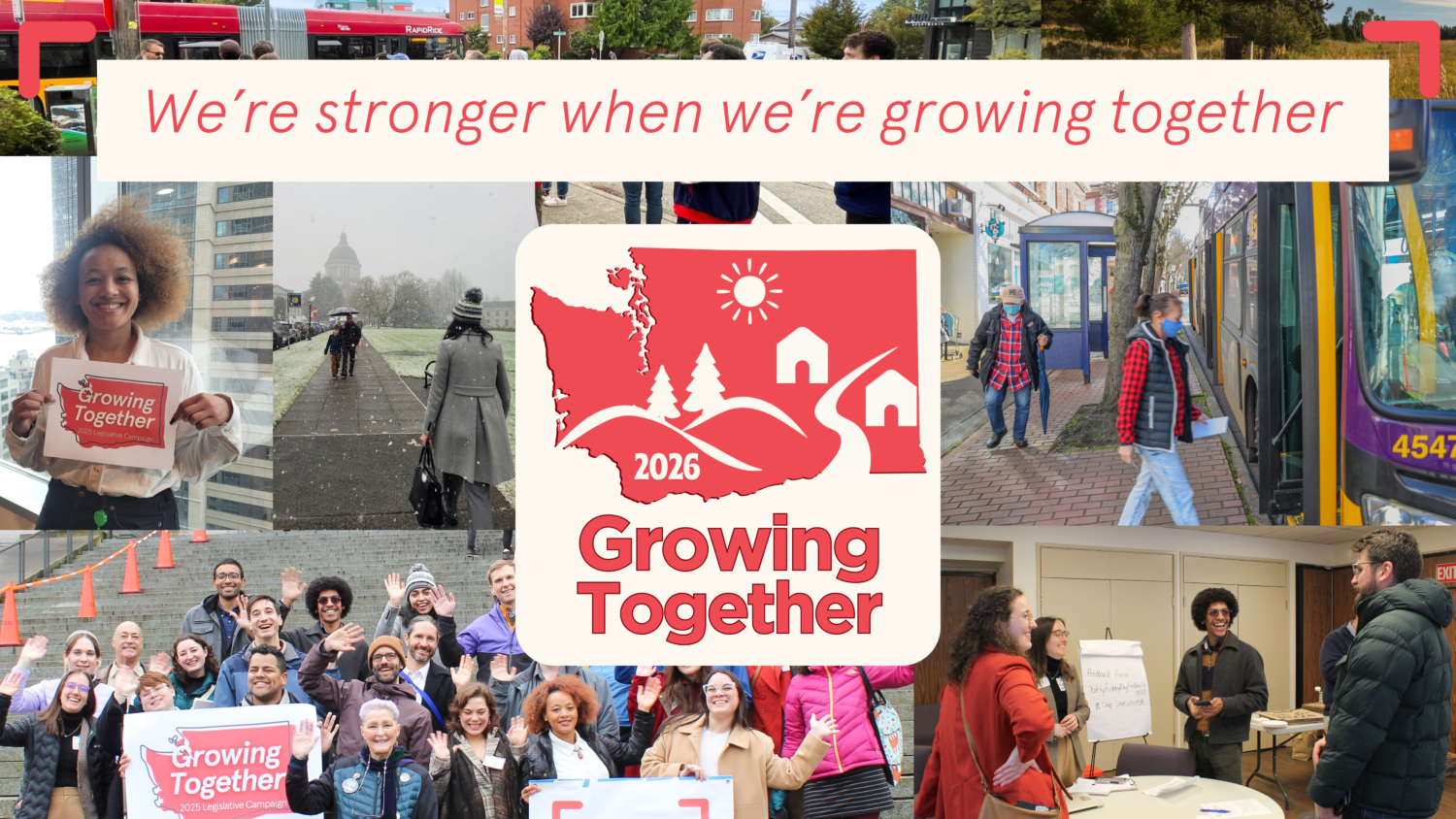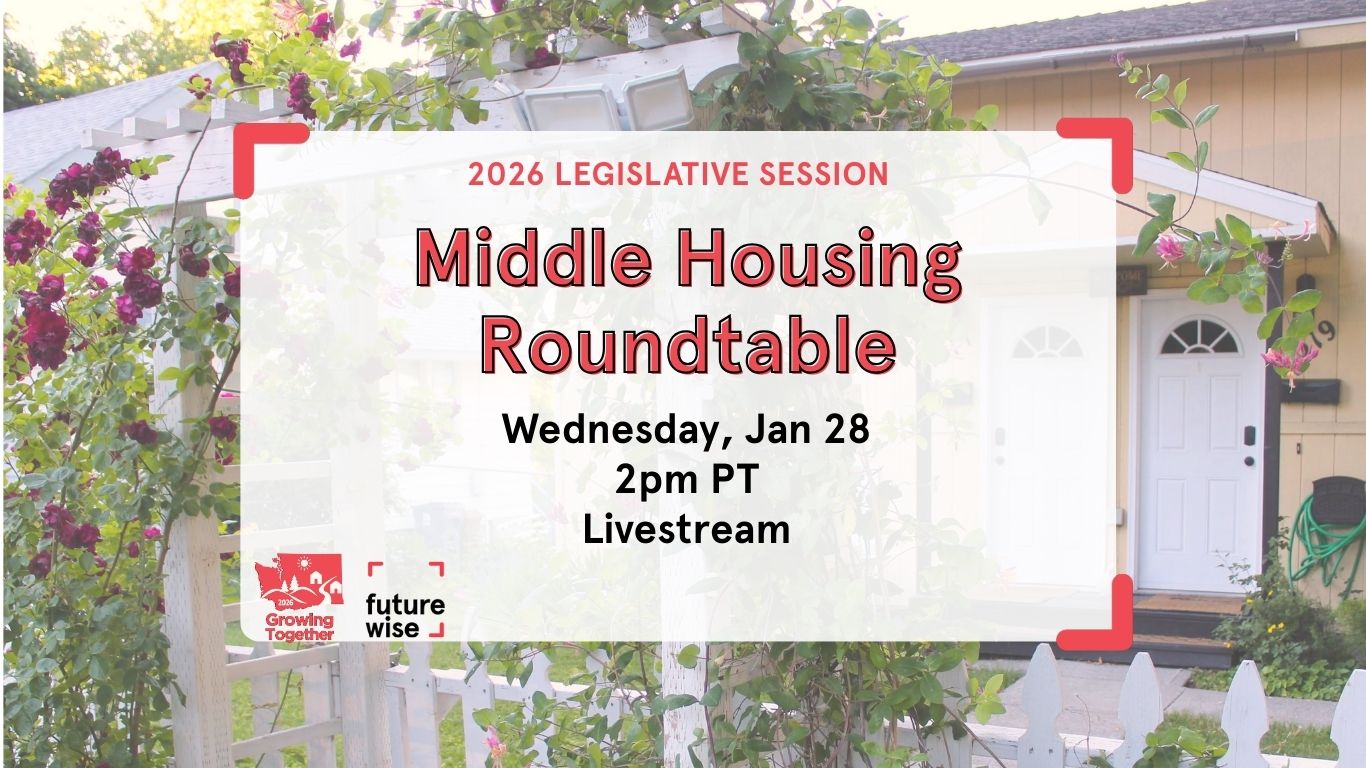January 2025 Executive Director Note
Futurewise was founded on the idea that location matters. Coming out of World War II, the US embarked on a new suburban development pattern. It created a temporary illusion of a more affordable way to live, but the costs became more and more apparent over time. We called this new pattern sprawl.
Sprawl meant households spending more money and time on driving. It meant that existing communities couldn’t afford to repair their streets, pipes, and schools because we spent so much on the infrastructure and services for new places. It meant damage to our ecosystems and food systems, declines in health and the loss of community. It meant new systems of racial and economic segregation and inequality. These were just some of the costs that led people to come together to pass the Washington State Growth Management Act (GMA) and found Futurewise in 1990.
35 years later, we are in the middle of a housing crisis and a general cost of living crisis. We desperately need more homes and ways to bring down costs for households, taxpayers and local government. Some people think that means that we should go back to our sprawling patterns of development. But this is the same false choice it always was.
At Futurewise, we have been taking the affordability crisis very seriously. Much of our state legislative agenda has been focused on ways to build more housing in cities, reduce transportation costs, and increase affordability, stability and access – from overhauling the housing element requirements through HB 1220 in 2021, to allowing missing middle housing options in urban neighborhoods through HB 1110 in 2023, to reducing vehicle miles traveled through HB 1181 in 2023, to our current work on transit-oriented development (TOD) and rent stabilization.
As an organization with deep roots in many rural parts of our state, we know that rural communities need housing solutions too. But if we built enough housing in rural areas to have a meaningful impact on prices, they wouldn’t be rural anymore. And the infrastructure costs to transform those places into new suburbs would be enormous and would make it much harder to maintain and expand infrastructure in the nearby cities and towns where housing can be more truly affordable. We also know that without regulations, much new housing in our state’s breathtakingly beautiful rural places will go towards vacation homes and short-term rentals.
Since its inception in 1990, property owners and developers have tried to loosen the GMA’s restrictions on building in rural areas. We have opposed those efforts at the state level and at the county level. Last year, going up against powerful real estate interests that are major funders of many legislators’ reelection campaigns, we were able to prevail in stopping a rush to pass bills that would have doubled rural densities. Those bills would have allowed new homes to be permitted as detached accessory dwelling units (DADUs), and then not allowed these homes to be counted when setting the mitigation measures that counties typically take to address rural growth impacts. We asked legislators to take more time, so that we could add policies that address our concerns.
This year, for the first time, we are seeing some genuine attempts by bill sponsors – with the rural DADU bill and with other bills to add housing options in limited areas of more intense rural development (LAMIRDs) – to take our concerns seriously and address those concerns in meaningful ways. Most importantly, these bills would require DADUs or any other new development to be honestly accounted as a new home as part of rural growth targets and mitigation measures. We continue to have concerns about how this will be done and see a need for improvement in these bills, but in recognition of a step forward from the other side, we are not just saying no. Instead, we are working to strengthen the protections in the legislation.
I hope you will join in this effort. If you are worried that a particular rural development impact isn’t being adequately addressed, please tell us and also tell your legislator. If you got involved with Futurewise because you want to see more TOD, you can tell your legislators that you want them to prioritize infrastructure and services for growing great transit-oriented communities, not subsidizing vacation homes or exurban super-commutes for people who would rather live closer to work. If you got involved because you care most about protecting rural communities, you can tell your legislators how allowing more homes near transit will relieve pressures on rural areas.
The issues that brought each of you to Futurewise are all interconnected. Practicing solidarity across those issue areas makes your advocacy stronger. Futurewise is only as strong as the community we represent.


